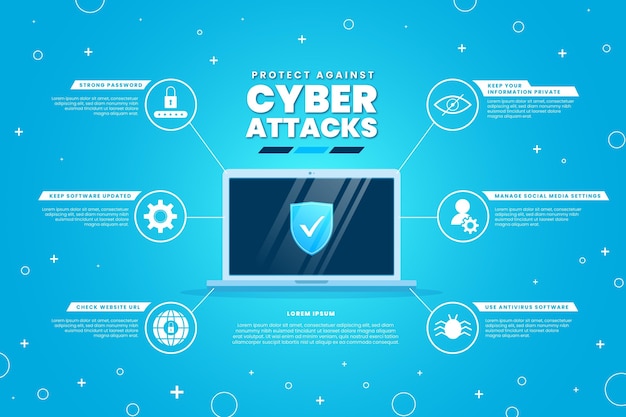
Cyber scams can occur in a variety of ways, but all of them share a common denominator – they happen in the digital realm. These scams are essentially crimes intended to damage someone’s reputation or cause physical or mental harm, using computers and internet-based networks.
Predominantly, cybercriminals and hackers, motivated by financial gain, commit these scams. Yet sometimes, the intent might be to harm computers or networks for reasons unassociated with financial gain. In the ensuing sections, we’ll explore the prevalent types of cybercrimes and how you can safeguard yourself.
PHISHING SCAMS
Among the principal forms of cyber attacks is phishing, which involves deceitfully obtaining personal information from unsuspecting users. Often mimicking familiar and trustworthy brands, illicit actors create counterfeit social media profiles or rogue websites to dupe users. Sophisticated versions of these sites may use malevolent scripts to extract data from browsers, eliminating the need for user input.
INTERNET FRAUD
Generally, this scam persuades individuals to transfer money, promising a significant return in the near future. Victims are contacted by an individual purporting to need assistance in transferring a large sum of money from a foreign country. Various iterations of this scam exist, with new ones emerging regularly.
The victim is typically asked to shoulder a marginal cost for the money transfer process and is promised a substantial share of profits once completed. However, if the victim indeed transfers money, he/she will be told that unexpected issues have occurred necessitating more funds.
ONLINE INTELLECTUAL PROPERTY INFRINGEMENTS
This infringement includes issues such as counterfeit or replica goods, content piracy, patent infringement, and more. A comprehensive list of all types of intellectual property transgressions can be found in the article that follows.
IDENTITY THEFT
There are primarily two types of identity thefts, differentiated by the information stolen. Less severe forms occur when personal information or accounts without associated payment methods are stolen. Nonetheless, the crime is significantly more severe if credit card details or accounts containing such information are stolen, enabling the cybercriminal to make purchases using your account.
ONLINE HARASSMENT AND CYBERSTALKING
Online harassment and cyberbullying typically pioneer the form of posts, comments, or direct messages on social media or even emails. These communications are typically defamatory or threatening towards individuals or groups.
Cyberstalking is another form of harassment that concentrates on a single person who the perpetrator tracks closely. It’s likely that the victim’s employers, colleagues, and acquaintances may also be contacted to defame the victim or extract more personal information to augment the stalking activities. Such cybercrimes often result in severe mental health consequences for the victims, sometimes leading to the development of mental illnesses or, in extreme cases, suicide.
PROTECTING YOURSELF AGAINST CYBERCRIME
Considering the prevalence of cybercrime, you might be wondering how to defend against it. Below are some practical tips to protect your system and personal data from cyber threats:
MAKE USE OF ANTI-VIRUS SOFTWARE AND KEEP IT UPDATED
Deploying anti-virus or broad internet security software is a prudent way to protect your system. Such software can scan, detect, and eliminate threats before they escalate. Regular updating of your antivirus system offers optimum protection.
UTILIZE STRONG PASSWORDS
Employ strong, unpredictable passwords and refrain from noting them down anywhere. Avoid using the same password for all your applications and websites. A password manager can help you store all your passwords securely without the need for you to memorize them. If you use such a service, ensure your master password is robust, easy-to-recall, and the account is secure.
BE WARY OF LINKS
Many fall prey to cybercrime by clicking on links and attachments in spam emails or messages. Cybercriminals are innovative and capable of bypassing spam filters and virus detection systems with phishing attacks. Even if an email appears to come from a familiar contact, exercise caution and avoid clicking on any links.
BOLSTER YOUR HOME NETWORK
Begin by, setting a robust encryption password and using a virtual private network (VPN). A VPN encrypts all traffic from your devices until it reaches its destination. Even if cybercriminals manage to breach your communication line, encrypted data is all they’ll capture. Utilize a VPN when connecting to public Wi-Fi networks.
IN CLOSING
Cyber scams can take on numerous forms, from impersonation to phishing. As technology advances, it becomes easier and more widespread. It is crucial to be mindful of the existence of such crimes, both personally and professionally, and remain vigilant. If you suspect that you’ve fallen victim to cybercrime, it’s essential to inform local law enforcement, and in select cases, the FBI and Federal Trade Commission. Your report might aid investigators and potentially deter criminals from exploiting others in the future.


